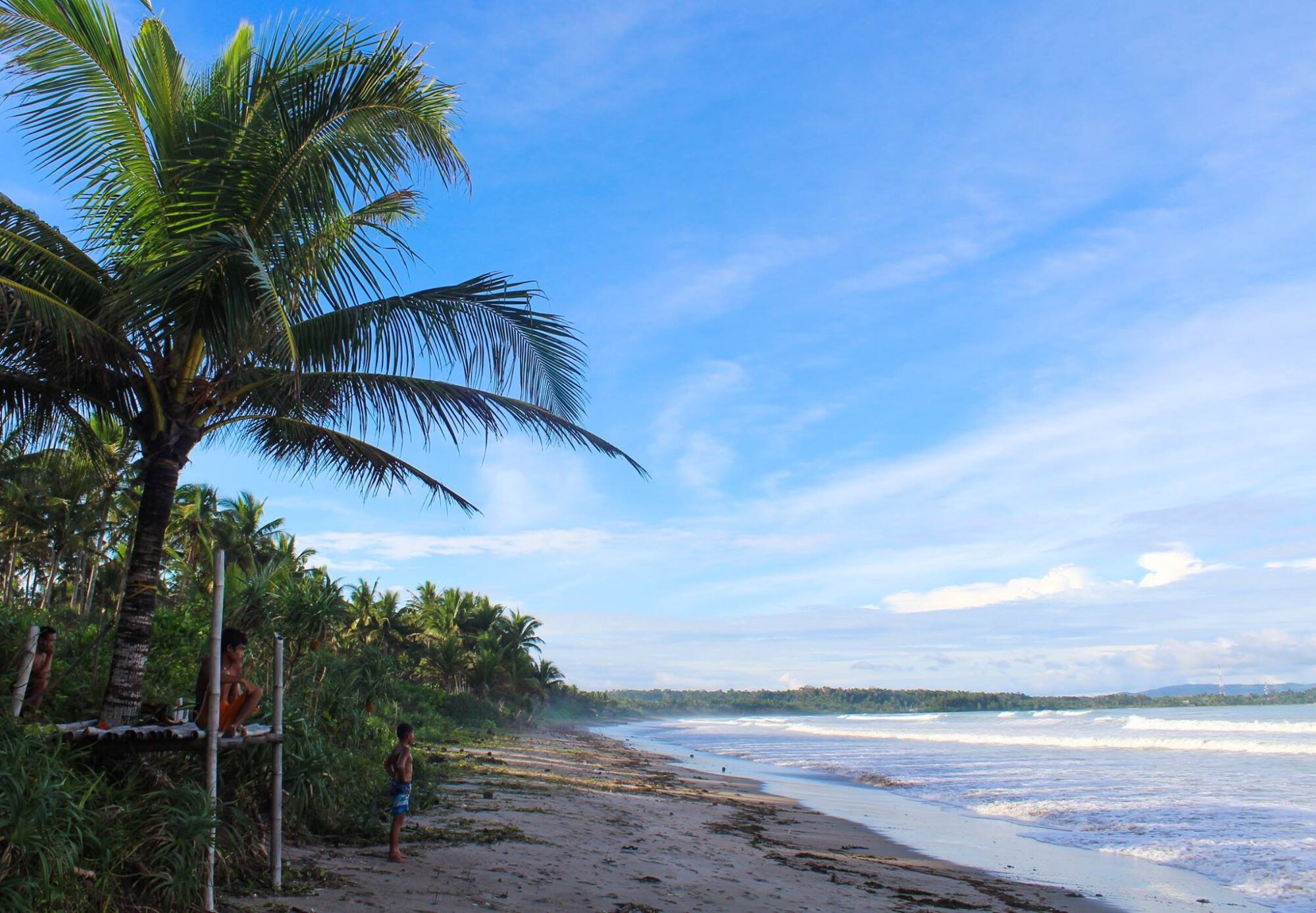These terms get thrown around a lot these days: ethical travel, eco-tourism, sustainable tourism, responsible and conscious tourism. But what the hell does it even mean?!
Is it just an excuse for a hotel to stop cleaning their sheets and provide shitty wifi? Is it all just clever marketing? Allowing consumers to get some feel-goods whilst buying products that they don’t even need. Or maybe it’s a convenient way of turning regular power outages into a USP, by convincing new-age hippies that they need to “disconnect to reconnect maaaaaan.“
In some cases: yes. It’s all too easy to throw out some green-sheen buzzwords. Everyone can happily go about their lives in a self-serving altruistic bubble. But if you’re reading this, then you are not one of those people. You demand better. You demand truth. By looking through the marketing ploys we can ensure our actions have real positive impacts.
Is It Possible to Travel in a Way That Is Good for the Environment?
Ethical travel is somewhat of a paradox. We all know that air travel is a huge contributor to escalating CO2 emissions. Therefore, at the very core of air travel is something that is unethical.
However, travelling has numerous positive benefits for both the individual and the communities that it connects. Benefits such as: economic support for small/rural communities, opportunities to broaden ones knowledge of new cultures and improving your quality of life through connections to people and places.
The list goes on. The fact you even found yourself reading this far means you are aware of many positives of travelling and exploring nature.
I believe this to be an extremely important conversation we all should be having. To first acknowledge that we could be causing negative impacts, means we can then focus our efforts on creating more positive impacts. Getting on a plane is damaging to the environment. You can balance this through things such as Co2 offsetting and ensuring that your trip focuses on supporting local communities. You could opt for longer, overland journeys that avoid flying.
Every time you leave the comfort of your home, even to go for a hike, you will be having an impact on the environment. Once an awareness is created of ones footprint, steps can then be taken to minimise that. You can even take it further and ensure that every time you venture out, you are creating a positive impact on the environment by picking up litter, for example.
I decided to ask some traveller friends to help us understand what all this means – to help us get to the bottom of these sustainable buzzwords. And I asked them to include some examples of ethical tourism done THE RIGHT WAY!
Feel free to send me your own answers too – I’d love to hear from you.
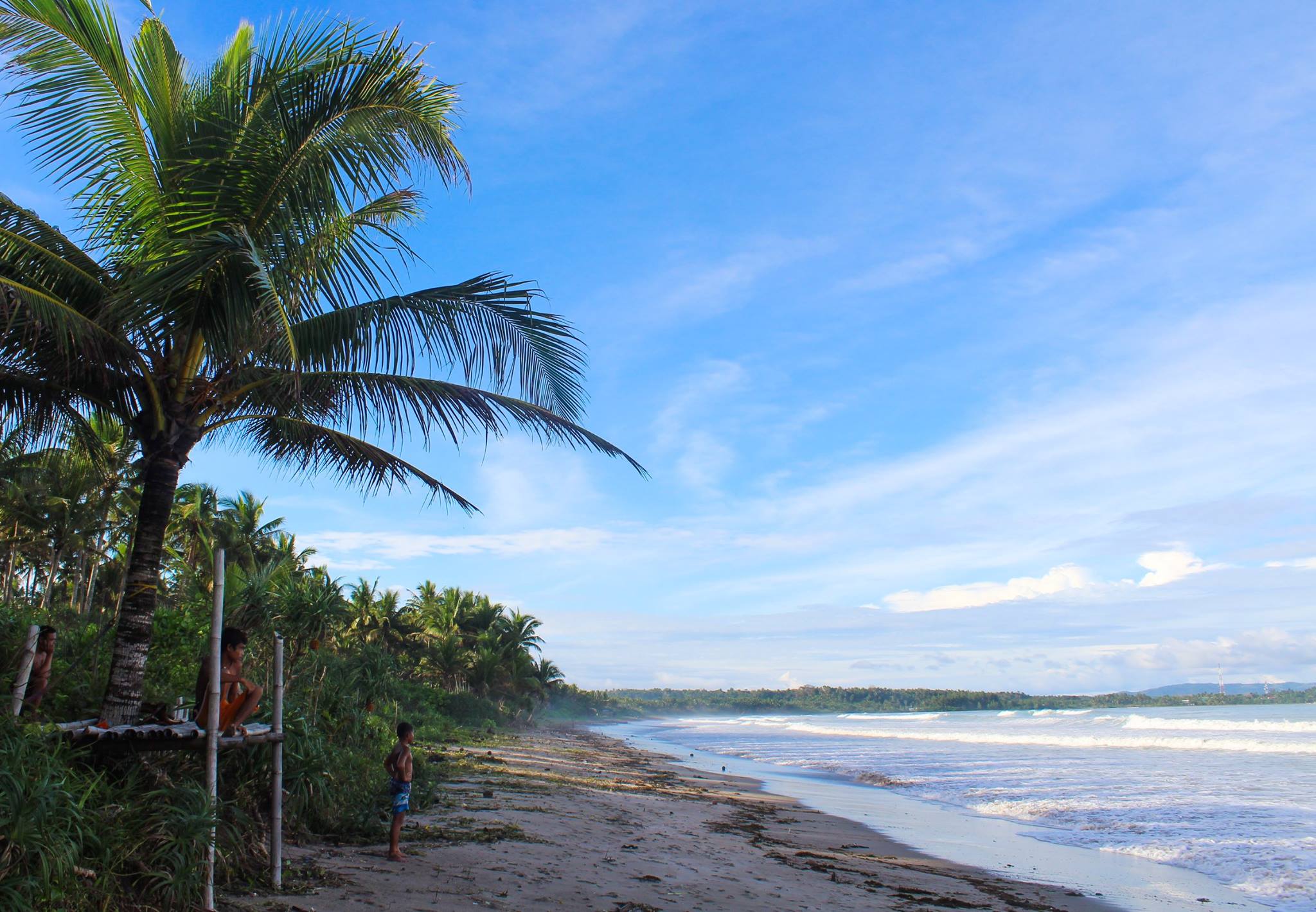
So, What Does Ethical Tourism Mean To You?
Ethical Tourism Concerning Wildlife
Ethical Tourism is Seeing Animals in Their Natural Habitat
Juliet from liveyourdream.today
When it comes to unique activities abroad, it’s not that easy to find truly ethical tourism options. I wanted to see elephants during my recent trip to Sri Lanka, but the more I researched so-called ethical elephant resorts, the more I discovered how badly they actually treat elephants.
The important thing for me is supporting organisations that care about animals and avoiding those that only care about pleasing tourists. Zoos are out of the picture. You’ll never see me in a place where elephants are chained for photos or made to bathe three times a day just to entertain visitors. And don’t even get me started on elephant riding, this one is simply cruel!
To stay on the safe side, you can always choose to visit national parks. For example, in Sri Lanka there are plenty of places like Yala or Udawalawe National Parks where you can see animals in their natural habitat. You won’t get a photo standing close to an elephant, but you’ll see them in the wild where no one is hurting them for your photo.
Besides national parks, I was able to find only one really ethical elephant sanctuary in Sri Lanka. It’s called Elephant Transit Home and they rescue baby elephants, rehabilitate them and let them back to the wild when they get around five years old. You are allowed to watch the feeding process from the distance, and there is nothing like seeing dozens of baby elephants drinking milk, running around, and having fun together!
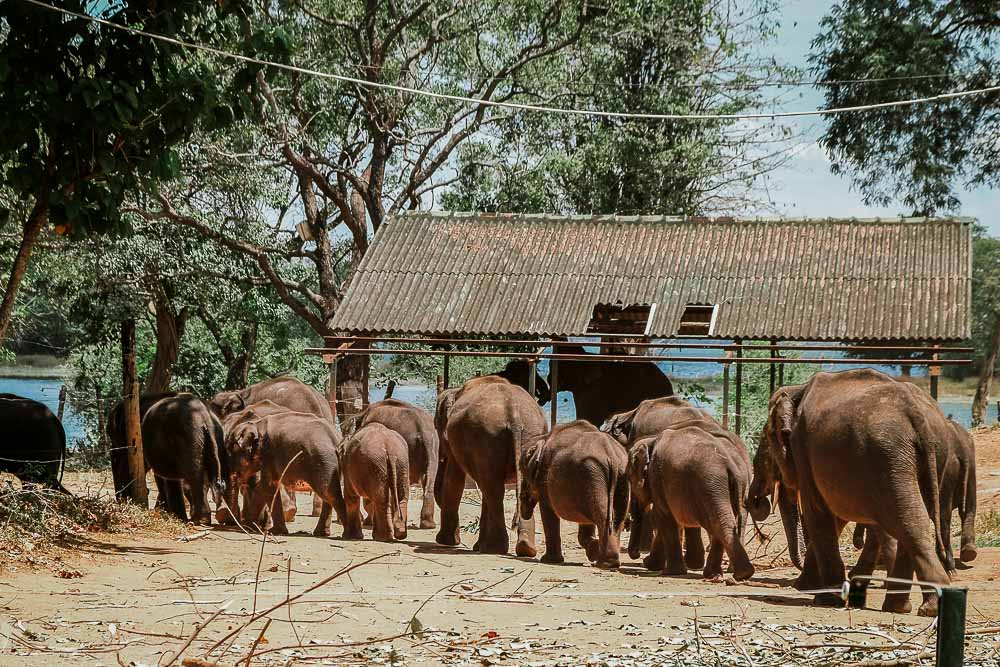
How Wildlife Tours Can Be Done Respectfully
Mario from Rest and Recuperation
Eco-tourism is a newish term, but luckily many of its principles are as old as tourism. There is not a clear definition encompassing all the aspects linked to the term. There are companies renowned for their good job in respecting local communities and the environment. There are equally many tours infamous for their bad behaviour towards animals.
But I’d to prefer to speak about good practices rather than pointing out bad ones. In my experience, one of the best eco-tours I have been on was the gorilla trekking. These animals are beautiful and I recommend to everyone this once in a lifetime experience. Having the opportunity to see a gorilla in Uganda is expensive, but absolutely worth it!
These treks are absolutely respectful of the environment. If you are sick, you cannot go, in order to prevent the animals from getting human sicknesses. Once there, you must keep 7 metres away for the same reason (and security). You cannot eat close to them and you are not allowed to leave any food in the forest.
The money earned by the authorities is spent supporting the well-being of the animals and the local communities. This helps preserve an endangered species that only lives between Uganda, Rwanda and Democrati Republic of Congo. If all tours were like these, the whole environment would benefit a lot!
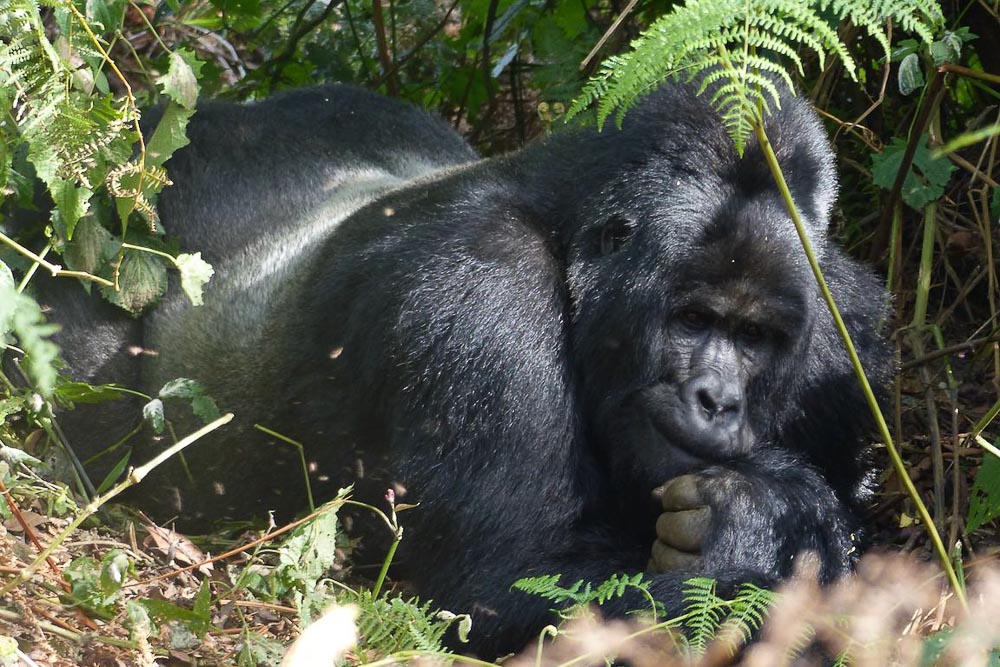
How Animal Tourism Can Benefit the Environment
Sandy & Vyjay from Voyager
As part of our efforts to become eco travellers, we try to visit places that are green destinations which are doing their bit towards sustaining the region and its environment. One of the aspects that is very dear to us is animal tourism. We discourage animal tourism where the animals are used for sport, for riding or traumatised in some form or another. On the other hand, we encourage endeavours that benefit animals and their environment. One such destination which really impressed us is the Mangalajodi Bird Sanctuary located near Bhubaneswar, the capital of the Eastern Indian state of Orissa.
The Mangalajodi Bird Sanctuary lies in the wetlands formed by the famous Chilika Lake. It is a haven for migratory birds that flock here during the winter months. An estimated 150,000 birds fly here from distant lands to escape the winter in their homelands. The beautiful environs of the Mangalajodi Bird Sanctuary is actually a great success story for wildlife protection and sustainability. The villagers who stayed near the wetlands were once hunters. Today, the hunters have turned protectors. They protect the birds, the sanctuary and they run the boats tours of the wetlands.
In a nutshell, the local community is the stakeholder in the ecotourism project of Mangalajodi, resulting in a win-win situation for all: the birds, the environment, the villagers, and the visitors.

Love Animals by Keeping Them Wild
Giulia from Giulia Cimarosti Photography
Ecotourism and ethical tourism often go hand in hand. However, too many travellers still can’t tell whether an activity that involves animals is ethical or not.
Let’s consider one of the most popular tourist traps in the world of travels: riding elephants in South-East Asia. Although riding an elephant may look cool in photos and could make you feel like you are connecting with an animal, the world behind elephant rides is far from romantic.
Anatomically speaking: elephants are not meant to carry weight on their back, as this can cause infections and serious spinal injuries. This is just one of the many unethical ways humans have come up with to exploit animals for profit in the tourism field.
On a recent trip to Africa, after exploring Botswana and its wonderful National Parks, I flew to Livingstone, Zambia, to visit the Victoria Falls.
Once at my guesthouse I was horrified by how many tours with otherwise free animals were sold to tourists: you could pay to pet a cheetah, feed a hyena or walk a lion.
What is the beauty in approaching an animal that has been abused and wouldn’t be there if only he had the chance? Especially when you can easily go on a safari in the same area and see free animals in their natural environment. The only reason why these ‘tours’ are still being sold is that there is not enough awareness about what hides behind this kind of activity: their ‘training’ involves chains, starvation, whips and sticks, torture, drugs and so on.
The same goes for dolphinariums – if you love cetaceans go for a whale watching tour to see the real thing. Whales and dolphins can’t live in tanks.
I understand it may be difficult to tell whether animal abuse is involved in the activities you’re being offered, especially because the providers will always cover up the truth. So when in doubt always go for free animals!
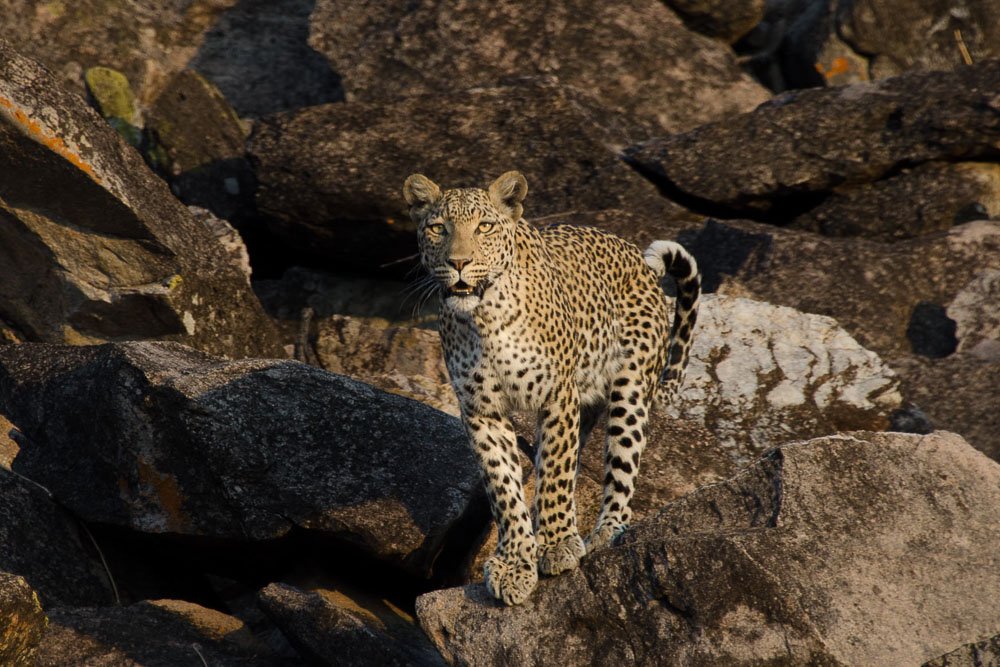
Responsible Tourism Benefits the Local Community
Connect With Locals Through Community Based Eco-Tourism
Emily from Wander-Lush
To me, ethical tourism is tourism that involves local communities as active participants and decision makers, not just bystanders or beneficiaries. Tourism projects that are determined by local communities and built on input from leaders are typically more sustainable and ensure the benefits of tourism are more equally distributed.
In the last decade, community-based tourism has emerged as a popular model of eco-tourism in rural and remote communities. Once a community identifies tourism as a potential route for financial and social development, they might partner with an NGO or investor to set up homestays and employ local people as guides and service providers. Once established, the project is community run, with all profits going directly to the hosts. Usually a small portion is set aside for a community fund, which is then used for projects that benefit everyone (such as improving infrastructure or building a library, for example).
For travellers, community-based tourism projects are a way to access small towns and villages that would otherwise be closed off. Spending time in a community is a rare chance to connect with locals in a meaningful way. For communities, it’s a valuable form of income and an opportunity for cultural exchange.
I’ve experienced dozens of initiatives that follow this model throughout Southeast Asia and in Eastern Europe. In Republic of Georgia, the Pankisi Valley Tourism and Development Association was founded by a family who wanted to set up a guesthouse in their home, and has since expanded to a network of homestays, tours, cooking classes and craft workshops led by community members. One of the best things about this model is that it plays on everyone’s strengths, giving people an opportunity to develop their skills and engage with tourism on their own terms.

Cultural Experiences That Help Support Local Communities
Paula from Paula Pins the Planet
We, as travellers, are generally curious people and we have plenty of questions before we visit a destination. A question that I always ask myself before I go to any new destination is if it is ethical tourism and if it will create a positive impact on the people and the environment.
My definition of ethical tourism is to respect the environment, the people, their culture and traditions, and engage with them in an open and dignified way, and I always focus on the support for local communities. One of the best travel experiences I’ve had was to go trekking with the Black H’ mong hill tribe in Sapa, Vietnam.
Hiring a guide directly from one of the local hill tribes, and staying with a local family means you can see exactly where your money is going – directly to the community without a third party taking commissions or cuts. The community gets 100% of the profits. By going direct, the families and community benefit from the money you spend, rather than a small percent coming from a tour company. You can also find ways to contribute to the tribes financially or through spreading the word of your experience to attract more ethical travelers to visit this beautiful region and experience the amazing culture.
Living with a hill tribe, engaging with local culture and hiking in the mysterious misty mountains of north-western Vietnam… all whilst helping to give back to the community, is a win-win experience that I highly recommend.

Ethical Travel Means Going Local
Mikaela from Voyageur Tripper
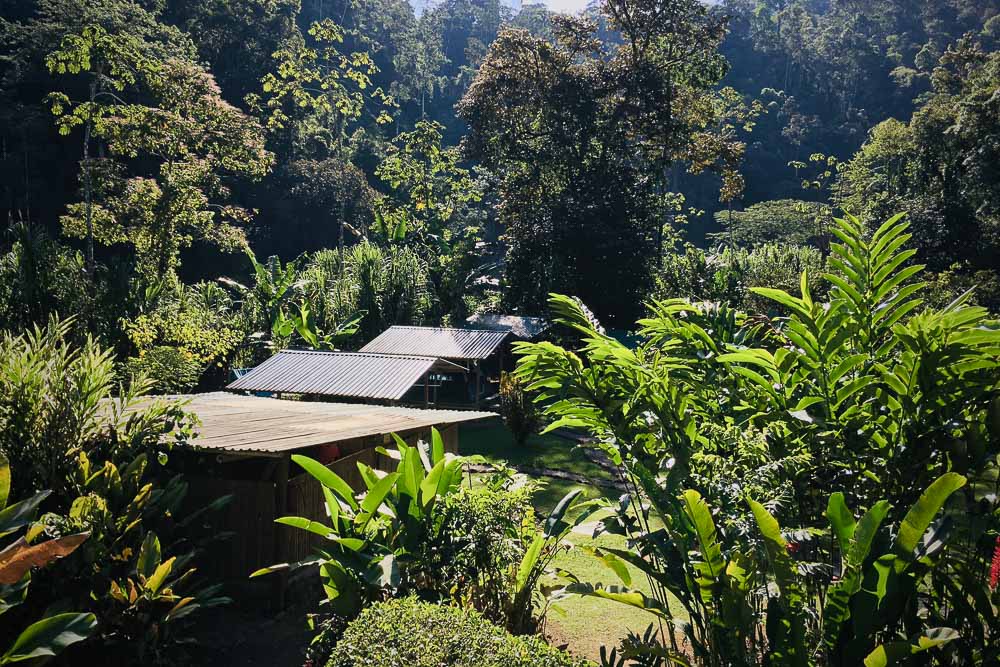
Supporting Local Communities & Environment Through Tourism
Steph from Worldly Adventurer
While many definitions of ethical travel focus on the environmental ways that you can travel better, being a more responsible traveller is just as much about the social impact you have when you visit destinations.
I’m a vocal supporter of community-based tourism. In layman’s terms, this means tourism that has been developed in conversation with the local people of the destination – and whose lives will be most impacted by the arrival of visitors.
In concrete terms, this means actively supporting locally-operated tour companies who directly employ local people and who don’t run problematic activities such as visiting orphanages or schools. It also means staying at accommodation that is similarly run by people who inhabit the community – not chain hotels where the money is syphoned out of the country and into the pockets of rich foreigners. When I spent a few weeks visiting Guyana with Wilderness Explorers, I saw this in action, with the company having helped local indigenous communities to develop ecolodges and sustainable tours that bring in tourism revenue, give them the opportunity to share and maintain their culture, and help them to protect the environment.
Unfortunately, it’s rarely clear whether companies do any of the above, but there are ways that you can find out. If you’re unsure, ask the operator about the types of activities they do and look for evidence on their site of how they have a positive impact on their partner communities. Companies such as Intrepid Travel specialise in these types of tours across the world, while it’s often easier to find small, locally-operated companies by going to destinations that few other tourists visit – and this also helps to overcome overtourism.
For hotels, it should be clear on their About Page about the values and impact they have, while sites such as BookDifferent help you to choose hotels that are environmentally sustainable, too.
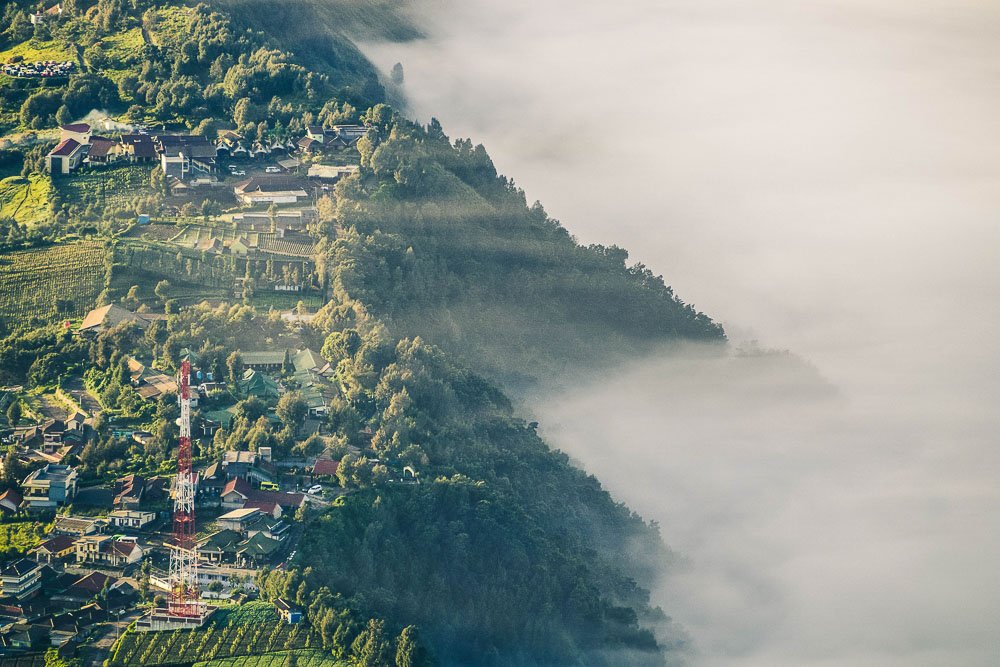
Eco Tourism Means LEAVE NO TRACE & Avoid Waste
Be a Responsible Traveller by Following ‘Leave No Trace’
Erin from Go Camping Plus, Australia
Having been an outdoor lover since I was a child, I was taught early on that when we were exploring the outdoors, we should leave the area we were in with no trace that we were ever there. It became a game for my sisters and I, to see whether we could make a campsite look like we had never been there. Occasionally we would even ruffle up the leaves a little on the ground as we left muddy footprints on a hike.
While I know that covering up our muddy footprints wasn’t exactly what was meant by the Leave Not Trace Principles, I can certainly appreciate the lesson that our parents instilled in us at a young age. As a teacher and now parent myself, this is a lesson we teach our children with great care and empathy for our environment.
Leaving no trace of our being somewhere is so simple, yet so important. We teach our children to leave nothing behind that we took with us and take nothing with us that we find. To think about other people when we are out and about. That includes animals that live in the areas we love to explore. Finally, we always stick to the tracks!
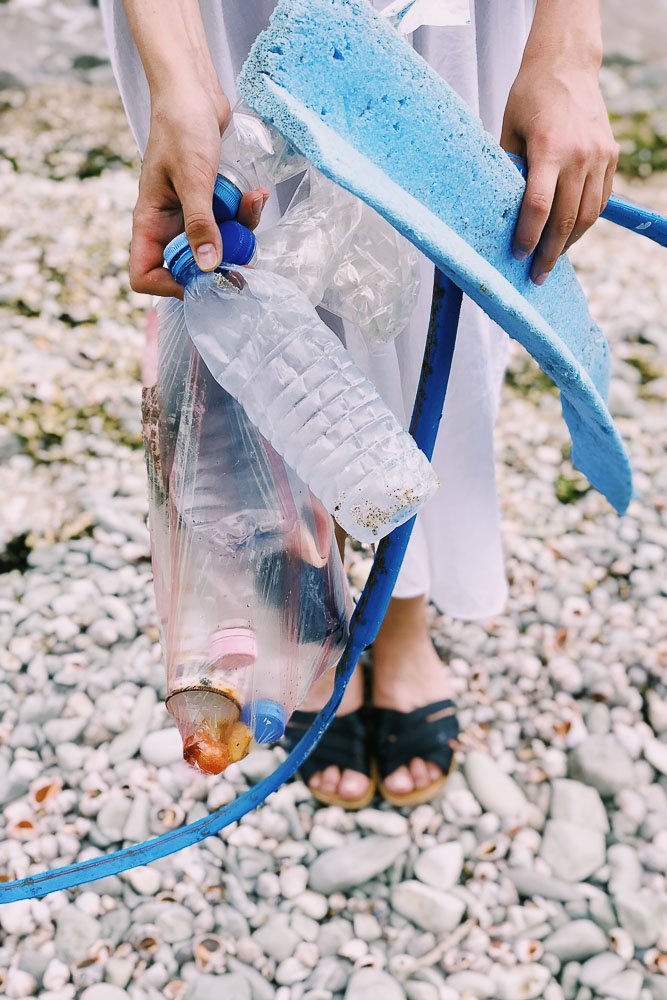
Respect the Environment and Always Leave What You Find
Claudia from Strictly Sardinia
Being an ethical tourist means respecting the environment in general, but even more so in the place you are visiting. That means many things – for example, not abandoning any waste. It also means not taking from it.
If you are traveling to a beach or a desert, no matter how tempted you are to bring home a small souvenir, do not bag sand, stones or shells. This practice is disruptive of the delicate environment you are visiting – it took thousands of years for that sand to be formed! – and in many cases, it is also illegal.
Taking sand or stones from Sardinian beaches is illegal, and tourists (or locals) who are caught with it are subjected to heavy fines. There are signs throughout Sardinian airports, harbours and often also directly at the beach that warn visitors that taking sand is against the law.
Wherever you are visiting, make sure to read up on it before going – that’s how you will discover the local rules on taking from the environment. In any case, whether or not there is a law that prohibits from taking, you shouldn’t be doing so!

Know Where to Refill Water to Avoid Waste
Deb from The Visa Project
A few weeks after I decided to travel, the realisation that I had to have a strategy on water consumption hit home. In Latin America, where I was traveling, it meant buying a new water bottle every time I ran out. This also meant disposing of at least two bottles every day.
Throughout my travels I always stayed in backpacker hostels or rented an Airbnb. These places had a source of clean, drinkable water. So, I decided to always fill my water bottle before I left for the day.
If that day involved being in a town or city with access to restaurants and cafes, I wouldn’t worry about rationing the water so much, as I could ask a server for a refill. They always were happy to help me out. A lot of places would have a filter where I could do it by myself as well.
If I were to go on a hike or somewhere without places to fill in water, I would simply try to ration it until I come back.
Once I really got into it, it wasn’t hard to stick to the plan and was much more sustainable. Surely there were times when I had to buy a water bottle, but apart from that, it worked out for me.
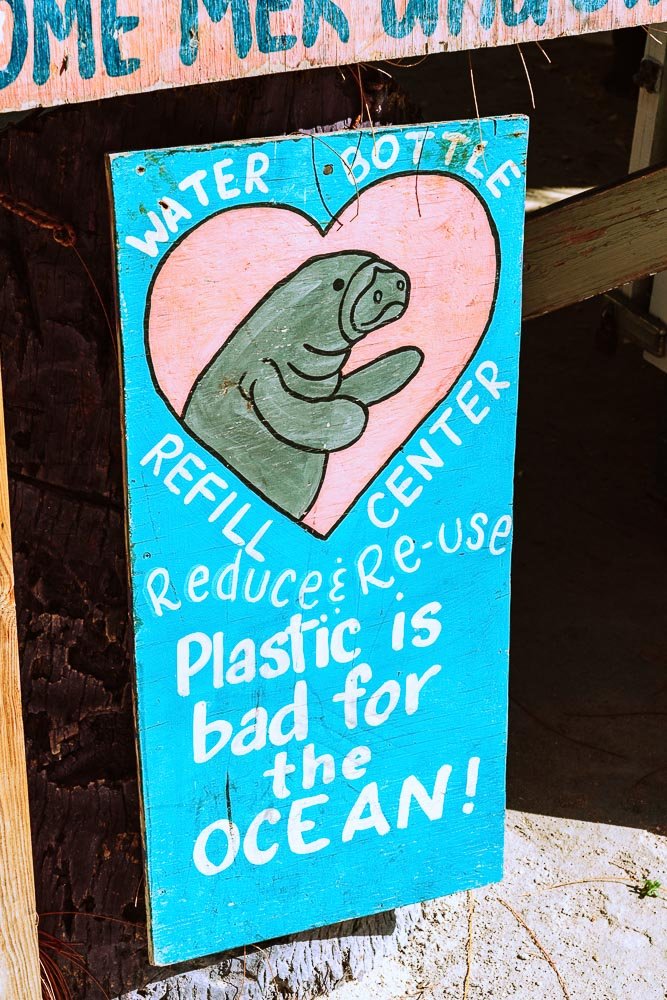
A Responsible Traveller Brings Their Own Toiletries
Manpreet from YourVeganAdventure.com
It doesn’t take much time researching on the internet to learn about the drastic impact plastic has on our environment. Hotels have been in the limelight for the masses of single use plastic they waste in their rooms around the globe.
Over the past few years, we have been making a conscious effort to take our regular bathroom toiletries with us on all our trips. It can be easy to pick up the cheap travel size ones available at every airport store, but this doesn’t help solve the issue. By taking the items you regularly use, you are actively stopping the production of more plastic waste. A great advocate of this zero waste movement was The General Kyoto Hotel, Japan. The bathroom impressively had no site of plastic for any of the essentials. They provided metal jars with soap/shampoo/conditioner, and all of it was cruelty free, conscious for the environment and the animals.

Reduce Waste by Choosing Sustainable Menstrual Products
Corritta from My Eco Flow.
One of the easiest ways to travel more sustainably is to reduce your waste. You may not notice but your menstrual cycle produces a lot of waste, with most women using an average of 12,000 tampons or pads in their lifetime. That is a lot of waste, especially for a product that can take up to 500 years to decompose. By switching to sustainable menstrual products such as menstrual cups, period underwear, or organic cotton tampons and pads you can not only save money but save the planet. While traveling you will not have to worry about looking for products if your monthly friend visits unexpectedly.
One of the most popular sustainable menstrual products is menstrual cups. They are made from high-grade medical silicone and can last up to 10 years. Yes, you read that correctly, with proper cleaning and care your menstrual cup can last up to 10 years. Imagine how much you are reducing waste over your lifetime. You can truly go to a country and leave no trace, which is always the goal.
There are affordable menstrual cups that can be used on your journey without any worries or accidents. If you want to be a more conscious traveler help be reducing waste and helping others. Many companies will provide a free cup to women around the world for every menstrual cp that is purchased. So you can travel more sustainably and help the women in the places you travel, that sounds like a win/win scenario to me.

Eco Travel with Resuable Bottles and Bags
Manpreet from HelloManpreet.com
When packing for a holiday, there are a few items that will go along with us for lots of reasons. These items include reusable water bottles and our tote bags. Many countries around the world have not increased their legislation to avoid the use of single use plastics, which for those of us who try be as sustainable as possible, is quite hard to accept.
There are two things we really enjoy on our city breaks… walking and shopping!
Our water bottle is great when we are exploring the city and stops us from having to buy plastic bottled water at local convenience stores. You would be surprised how many restaurants will allow you to fill up your bottle, either for free or a small unspecified tip.
The shopping bags are great for our longer trips where we may need to grab some basic groceries, or more commonly when we are out shopping for general things and the stores are still only using plastic bags. Tote canvas bags are great as they can literally fit in your pocket when not used and can carry a lot of weight when required. Both of our items take up little to no space in our luggage and help us to do our bit for saving the planet!
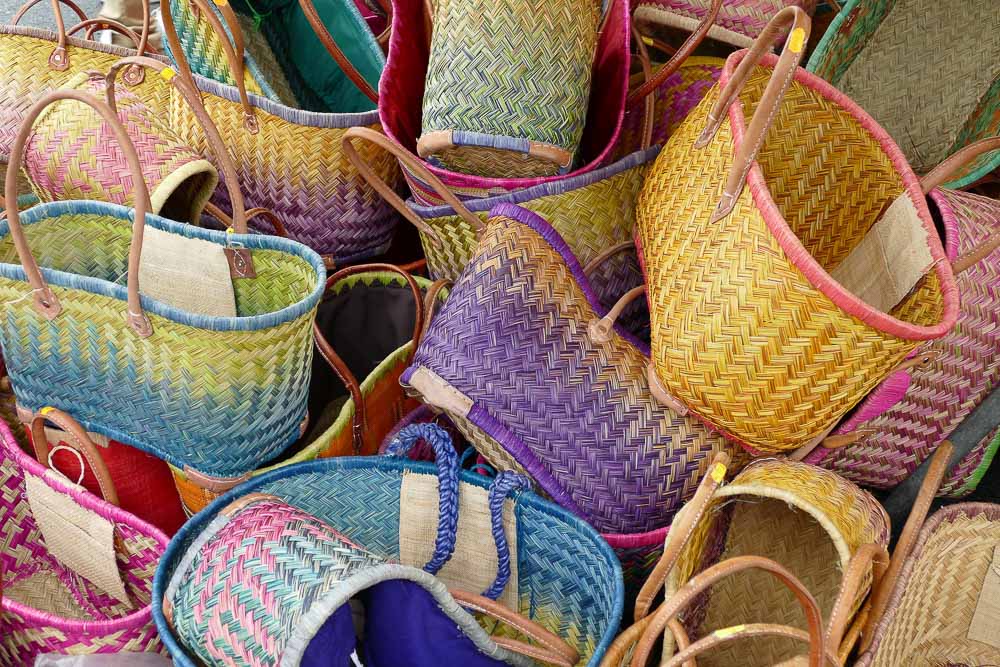
Some More Ideas on How to be an Ethical Eco Traveller!
Look Into the Companies Ethos and Ethics for Staff and Environment
Sarah from Apus Peru
To me, ethical tourism starts at home. How a travel company runs its baseline operations speaks volumes about their values, and you can be sure those values will trickle down into everything else they do.
Decent wages and adequate benefits for staff are the bare minimum. An ethical company knows that its employees are its most important resource, and so it invests in them. Regular team-building outings will help employees bond, and skill-building workshops help them to flourish and excel in their profession – whether they’re a salesperson, someone handling the logistics, or working on the trail as a guide, cook or porter.
Another fundamental indicator of a tourism company’s ethics is its relationship with the local community. When evaluating supposedly ethical travel companies, ask them, what are they doing to ensure that local communities are benefiting from the tours they operate? Do they hire local staff? Avoid exploitative practices? Do they honour local cultural traditions? Perhaps donate a portion of their earnings back to into local projects?
How do they treat the land on which their tours or hikes take place? It’s almost a guarantee that a company offering wilderness trekking tours, for example, is not hiking through land that they own. How a person – and by extension, a company – treats something which they do not own is a clear measure of their ethics. Just as a responsible person will treat someone else’s property with respect, so too will a responsible travel company treat the natural environment with respect. This can mean following “leave no trace” principles on the trail; conserving resources and discouraging the use of single use plastics, among other things.
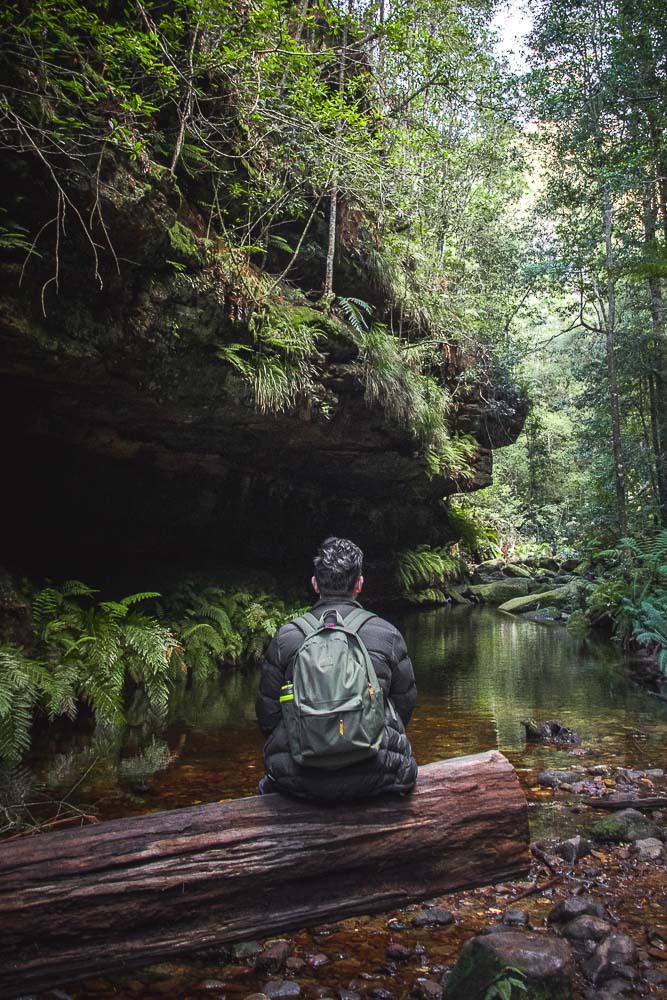
Ethical Tourism Means Seeking Out Lesser Known Locations
Or from My Path in the World
To me, one of the biggest aspects of being a responsible/ethical traveler is to avoid contributing to over-tourism. In so many places around the world like Venice, Barcelona, and Bali, the large number of tourists has negative impacts that are overriding the positive impacts.
From overcrowded historical landmarks that get physically damaged by people, the increase in rent prices and the massive crowds disturbing the every-day life of the locals. Over-tourism has become a massive problem.
Apart from the fact that traveling is a lot more accessible these days, I think that one of the biggest reasons for this situation is social media. When you see beautiful, perfect photos of the exact same destinations over and over again, you feel encouraged to visit them. They also don’t show the crowds and the ‘ugly side’ of tourism, and instead, they are repetitive and staged.
On one hand, we as travel bloggers should be more transparent, letting people know what it’s really like to travel to these highly-popular destinations. We should encourage our audience to visit underrated countries, regions, and cities.
On the other hand, every traveler should take responsibility, learn more about their ‘dream destination’, and consider visiting alternative ones instead. It shouldn’t be that difficult because you can still visit popular countries that you’re eager to see, but you can travel to other parts of them, e.g. Bologna or Modena instead of Venice, and Salamanca or Bilbao instead of Barcelona.
Taking things to a higher level, I’m also all for exploring underrated countries like Romania, Poland, or Hungary. Yes, their capital cities are touristy, but as a country, there is still a lot more to discover in each one of them.

Responsible Tourism Through Low Impact Accommodation
Anna from Would Be Traveller
To me, ethical travel is all about minimising the impact we have on the people, communities, wildlife, landscapes and environment we come into contact with when away from home.
We can do this by choosing to support ethical businesses and attractions that support products and employ staff from local communities, thereby ‘sharing the wealth’ with those that need it most. Opting to stay in accommodation that allows you to fully appreciate the natural environment around you is another great way to be ethical. But perhaps most importantly, it’s about travelling as if you were never there. We should recycle whenever possible, use reusable products over disposable ones, and use renewable energy to support our travel as much as we can.
In my opinion, using eco-glamping sites in your own country is a great combination of all three. One of my favourite trips to date was to a luxury, yet environmentally friendly campsite in Pembrokeshire National Park called Top of the Woods. Not only did they use ethical products and cleaning supplies across the site, they also encouraged their guests to do their bit by providing recycling points, compost toilets and fresh drinking water, thereby minimising their impact. But the really special thing about the site is its position on a farm with spectacular views over the rolling fields and woodland. From here, you can explore the beautiful local countryside. Just remember to leave no trace!
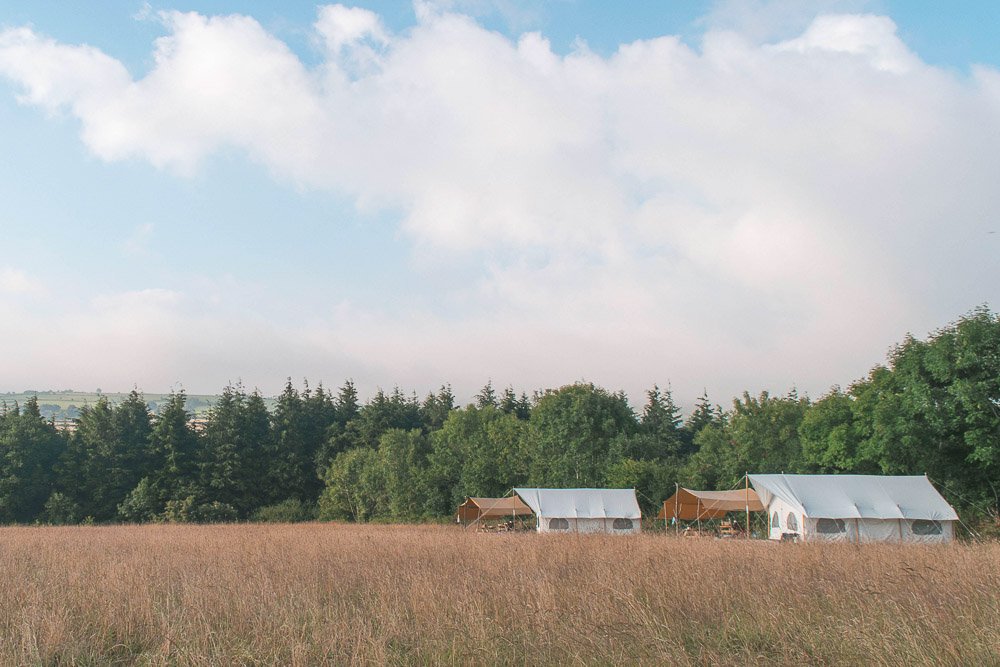
Learn Local Customs in Order to Be a Respectful Traveller
Linn from Brainy Backpackers
One important but unfortunately often overlooked part of ethical tourism is as simple as respecting the locals and local norms, whether traveling locally or internationally. With a mindset that you’re a visitor, the locals will appreciate you being there. Be open-minded, talk to the locals, ask questions, get to know the destination and its people. It’s such a rewarding way of traveling and might even take you places you didn’t expect and give you much more knowledge of the places you visit.
Especially if you travel far from home and to different cultures, I recommend you read upfront what the differences are. In some countries, like Morocco, it’s said that you take the soul away from a person when you take their photo. With this in mind, you should always ask before snapping a portrait of a person when traveling – it’s not very nice to have a stranger stick their camera up your face without asking first. I’m sure you can put yourself in that situation.
I like to talk to other travellers too when I travel, as they might have picked up something I haven’t so that I can always be as respectful. It is interesting to ask different people the same questions to avoid subjective views but to actually get an understanding of what the general views are.

Respect a Culture by Learning the Local Language
Paulina from Paulina on the Road
Ethical tourism to me, means that you learn the basics of the country’s language that you are visiting. The language is the key to a culture and to connect with the local community. If you visit a country without exchanging with the local population, you’ll only take but won’t give. Ethical tourism and sustainable tourism means thinking about the consequences of your actions as a tourist on the local community landscapes and economy. You need to be aware that some destinations only live from tourism and that traveling should be a meaningful exchange and learning process.
We all strive hard to become environmentally friendly and one of the countries that have made the biggest shift towards an eco-friendly destination is Spain.
Ecotourism can particularly be found in Southern Spain. Spain offers many opportunities for the eco-tourist whether you wish to take a cycling tour to save fuel, volunteer on organic farms, or helps endangered wildlife. Spain’s rural regions in the south and the centre contribute to environmental awareness. The authorities also implemented strict controls to its ecological parks, refuges and preserves where you can discover its natural spaces in an original way.
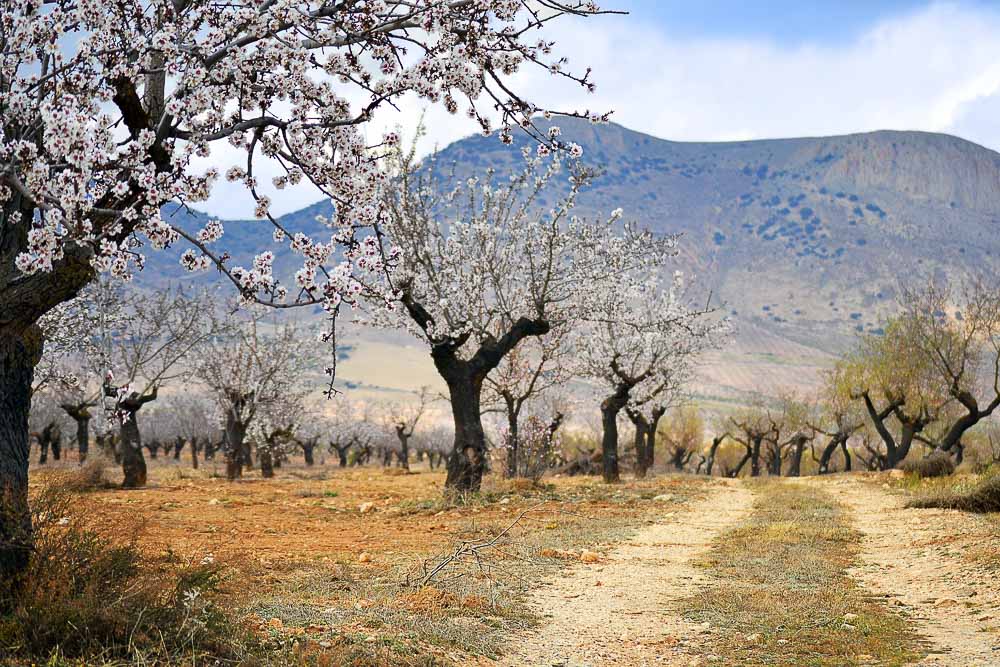
Join a Group Expedition with Like-Minded People
If all of the points mentioned in this article really struck a chord with you, then you’d definitely enjoy joining my group expeditions. I partner with local guiding companies in order to bring business to them and expert local knowledge to you.
Follow this link to find out more.
Or click here to continuing reading about the natural world!


